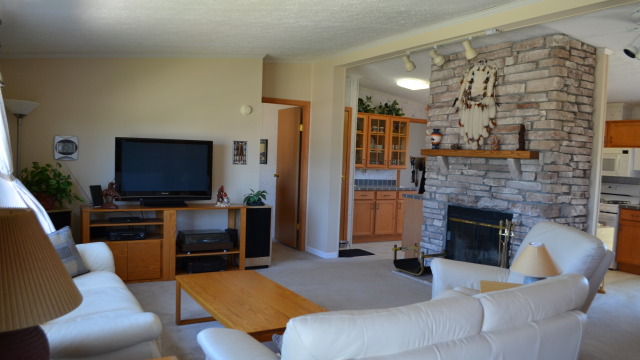Journal Star
By JENNIFER DAVIS of the Journal Star
But today’s posh pads still have smaller taxes
PEORIA – Cedar siding, stone fireplaces and skylights. Or how about French doors leading into a master bedroom with a huge walk-in closet and a master bathroom with both a two-seat shower and a separate whirlpool tub.
“These aren’t trailers anymore,” says Morgan County commissioner Virgil Smith, referring to the growing “manufactured” housing industry, a fairly new term for what many know as mobile homes.
But they are taxed as if they were the same “as a little single-wide trailer,” said Smith, one of many county officials statewide hoping to draft legislation to change the tax code.
Larger and with many amenities, these homes look nothing like the trailer homes of yore, he adds.
They can range from 900 square feet up to 2,500 square feet and cost anywhere from $20,000 to $100,000, depending on the region, says the Manufactured Housing Institute Web site. They can have bay windows, fireplaces, pitched roofs with shingles – just about anything a regular home has.
But mobile or manufactured homes aren’t assessed property taxes. They are considered personal property because they are technically mobile and, therefore, pay a privilege tax. It starts at 15 cents per square foot and decreases as the structure ages, eventually getting down to 7.5 cents per square foot.
A $45,000, 1,200-square-foot manufactured home, for instance, would pay $180 annually in privilege taxes.
A comparable home on a foundation, however, would pay $1,050 a year in property taxes in Peoria County.
According to the Illinois Manufactured Housing Association Web site, about 20 percent of all residential housing statewide is manufactured housing “and that figure is growing.”
Further, 70 percent of those homes are on private property, not leased mobile home parks, according to the Web site.
“I know of people who have put up a two-car garage next to their home and they pay more tax on the garage, which is considered real estate, than on their $80,000 double-wide mobile home,” Smith said. “Is that fair?”
Manufactured homes are not to be confused with modular homes, but both are growing industries, spurred mostly by an aging population.
Manufactured homes, which have steel rather than wood bases, are still technically mobile, although dealers say it’s rare for them to be moved. They can be attached to basements or set on concrete-secured piers.
They also can set on their wheels and be tied down, surrounded by skirting and landscaping so they look like homes on a foundation, which is “pretty common,” said senior hearing officer Jerry Gibson of the State Property Tax Appeals Board.
But the biggest change from the mobile homes of years ago is all the amenities now available – everything from cedar siding and front porches to skylights and cathedral ceilings.
“If you saw one of these, would you think it’s a mobile home?” asked Jennifer Updike, sales manager with R.J.S. Reynolds Factory-Built Homes in Creve Coeur, referring to photos of available models.
She admits she sometimes has a hard time telling them apart from site-built homes.
Modular homes, which she also sells, are built just like a regular home but in a factory and pieced together on site. They must be attached to either a basement or crawl space.
Modular homes are allowed within Peoria city limits; Manufactured homes are not unless they are in a mobile home park.
Peoria County does not have compiled statistics on the number of manufactured homes outside city limits.
“We just want to correct an inequity that’s in the statutes,” said Smith, who is working with other county officials, including assessors, zoning officers and school districts to draft an updated privilege tax code.
“The privilege tax was instituted when we had little single-wide trailers. At the time, that was no problem,” he said.
Fast forward to today, where in Morgan County, Smith’s homebase, there’s a new manufactured housing park that looks just like a subdivision, with “nice streets and sidewalks and lighting. It’s very nice.”
As long as these homes aren’t attached to permanent foundations, they pay the privilege tax. But Smith believes many homes statewide abuse this loophole because some counties aren’t vigilant about checking to see which ones are and which ones aren’t anchored.
Peoria County Supervisor of Assessments Paul Chamberlain agrees such abuse probably exists, but not here.
“I really do not think we have a problem in Peoria County,” Chamberlain said. “If it looks like a house, we’re going to value it as such and the onus is on the homeowner to prove it’s not one.”


